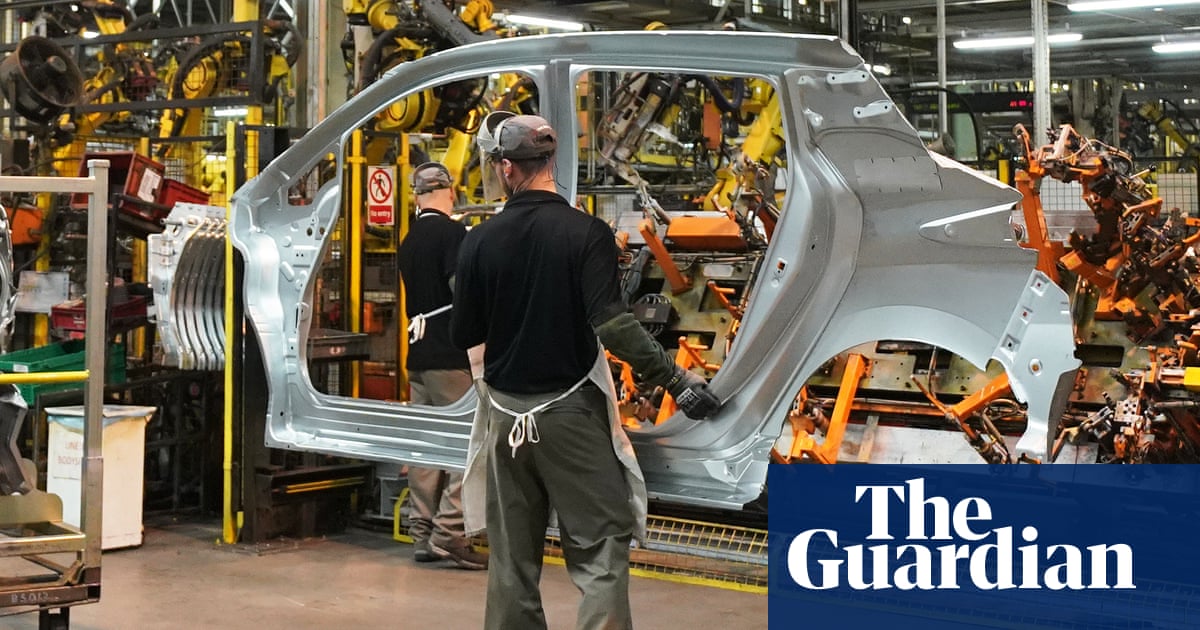Nissan’s new chief executive has said the Japanese carmaker would be open to building cars for a Chinese partner at its factory inSunderlandas he confirmed it would not be closed in a round of deep cost cuts.
This week Nissan revealed plans toclose seven factories and cut 20,000 jobsafter sustaining heavy losses.
Ivan Espinosa said on Thursday the UK plant at Sunderland would not be among the factories to close and he would consider building cars for China’s Dongfeng.
Sunderland, where it employs 6,000 people, is Nissan’s only factory in Europe and Britain’s single largest car factory, and Espinosa reiterated plans tobuild at least two new electric models there.
However, the Sunderland plant has been running under capacity for several years. In 2024 it made only 282,000 cars, down 14% from the year before, and well below its 600,000 capacity. Building vehicles for another company could help make the factory more profitable, as well as providing more jobs.
Nissan and Dongfeng already work together to build cars in Wuhan, China. Asked about the possibility of Dongfeng building vehicles in Sunderland, Espinosa said: “We are quite open to collaborate with them.”
“Everything is on the table,” he said, speaking at an industry conference run by the Financial Times. “We could leverage some of our joint work outside of China, inviting them to come into our production ecosystems. Everything is open.”
Espinosa was appointed in March and shortly afterwards issued a warning that the carmaker could lose £4bn this year, with the situation worsened byDonald Trump’s 25% tariffson car imports.
Espinosa said Nissan, which briefly considered a merger with its Japanese rival Honda, would consider taking investment from other firms, including other carmakers and technology companies. However, he added that Nissan wanted “not to be hostages to any one partner”.
The factory closures will definitively end Nissan’s hopes to be one of the world’s biggest carmakers. That path was set by Carlos Ghosn, the company’s chief executiveuntil his sensational arrest in 2018amid infighting.
Sign up toBusiness Today
Get set for the working day – we'll point you to all the business news and analysis you need every morning
after newsletter promotion
Espinosa said Nissan had a “fundamental problem” that started back in 2015, under Ghosn’s leadership, when the company aimed to produce 8m cars a year. It managed 3.1m cars in 2024.
While Espinosa said there was no intention to close the UK factory, he said the company needed support from the government, particularly on energy costs, which were significantly higher than in neighbouring countries.
Carmakers around the world have been lobbying governments for support, either via subsidies or by relaxing regulations.
Appearing at the same Financial Times conference, the heads of the carmakers Stellantis andRenaultcalled for the EU to allow them to sell plug-in hybrid electric vehicles cars for longer. Hybrids combine a smaller battery with a polluting petrol engine and are more profitable for traditional carmakers.
Luca de Meo, Renault’s chief executive, said he wanted to change from targeting zero exhaust emissions to looking at emissions over the life of a car, which he argued would favour hybrids.
